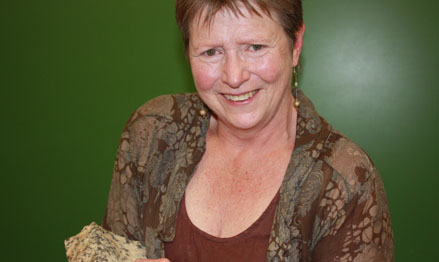Latest News Archive
Please select Category, Year, and then Month to display items
21 November 2024
|
Story Jacky Tshokwe
|
Photo Supplied
 Prof Mogomme Masoga, Dean: Faculty of the Humanities.
Prof Mogomme Masoga, Dean: Faculty of the Humanities.
On 8 November 2024, the South African Humanities Deans Association (SAHUDA) elected Prof Mogomme Masoga, Dean of the Faculty of The Humanities at the University of the Free State (UFS), as its new President. This appointment marks a pivotal moment for SAHUDA, which represents a diverse network of deans who champion the prominence and future of humanities, social sciences, and the arts in South Africa and beyond. Prof Masoga, who has served as Vice-President of SAHUDA for the past year, brings a wealth of experience and a deep commitment to advocating for the role of humanities in addressing the challenges of our contemporary world.
As President, Prof Masoga envisions broadening the influence of what he terms ‘public and applied humanities.’ His aim is to advance a humanities framework that not only enriches academic discourse, but also engages with critical global and local issues. This approach, rooted in socially responsive scholarship, will prioritise areas such as computational and digital humanities, environmental humanities, and other interdisciplinary fields that intersect with the pressing concerns of our time.
“The humanities are more relevant than ever to understanding complex societal issues,” Prof Masoga explained. “Through public and applied humanities, we can bring the critical perspectives of our field into active dialogue with the challenges of a digital and ecologically threatened world.”
His election underscores the University of the Free State's growing influence in national and international conversations about the future of the humanities. For the UFS, this leadership role enhances its reputation as an institution deeply invested in fostering meaningful contributions to society. Prof Masoga’s presidency is set to amplify the university’s voice and perspectives in SAHUDA’s mission to fortify the role of humanities in education and public life.
Over the next two years, Prof Masoga’s tenure will include a focus on initiatives that strengthen the relevance of humanities scholarship, encourage interdisciplinary research, and cultivate public engagement. He will also prioritise fostering collaboration across higher education institutions in South Africa and internationally to ensure that humanities disciplines are equipped to address the diverse needs of our rapidly evolving world.
Prof Masoga’s commitment to SAHUDA’s mission reflects the values and aspirations of the UFS Faculty of The Humanities. His presidency is an invaluable opportunity for the university to contribute to the national agenda of reinforcing the humanities as a field essential to a healthy, critically informed, and culturally aware society. This achievement serves as a proud moment for the UFS and a beacon for the potential of the humanities to drive societal progress in South Africa and beyond.
Prof Tredoux turns theories regarding the formation of metals on its head
2013-09-17
|
 |
|
Prof Marian Tredoux
17 September 2013 |
The latest research conducted by Prof Marian Tredoux of the Department of Geology, in collaboration with her research assistant Bianca Kennedy and their colleagues in Germany, placed established theories regarding how minerals of the platinum-group of elements are formed, under close scrutiny.
The article on this research of which Prof Tredoux is a co-author – ‘Noble metal nanoclusters and nanoparticles precede mineral formation in magmatic sulphide melts’ – was published in Nature Communications on 6 September 2013. It is an online journal for research of the highest quality in the fields of biological, physical and chemical sciences.
This study found that atoms of platinum and arsenic create nanoclusters, long before the mineral sperrylite can crystallise. Thus, the platinum does not occur as a primary sulphur compound. The research was conducted at the Steinmann Institute of the University of Bonn, Germany, as well as here in Bloemfontein.
Monetary support from Inkaba yeAfrica – a German-South African multidisciplinary and intercultural Earth Science collaborative of the National Research Foundation (NRF) – made this research possible. Studies are now also being conducted on other metals in the precious metal group, specifically palladium, rhodium and ruthenium.
The discovery of the nanoclusters and the combination with arsenic can have far-reaching consequences for the platinum mine industry, if it can be utilised to recover a greater amount of platinum ore and therefore less wastage ending up in mine dumps. This will signify optimal mining of a scarce and valuable metal, one of South Africa’s most important export products.
For Prof Tredoux, the research results also prove thoughts she already had some twenty years ago around the forming of platinum minerals. “Researchers laughed in my face, but the evidence had to wait for the development of technology to prove it.” Young researchers were very excited at recent congresses about the findings, since the new models can bring new insights.
“Chemistry researchers have been talking about platinum element clusters in watery environments for quite a while, but it was thought that these would not appear in magmas (molten rock) due to the high temperatures (>1 000 degrees celsius).”
Prof Tredoux has already delivered lectures at congresses in Scotland, Hungary, Sweden and Italy on this research.
Read the article at: http://www.nature.com/ncomms/2013/130906/ncomms3405/full/ncomms3405.html